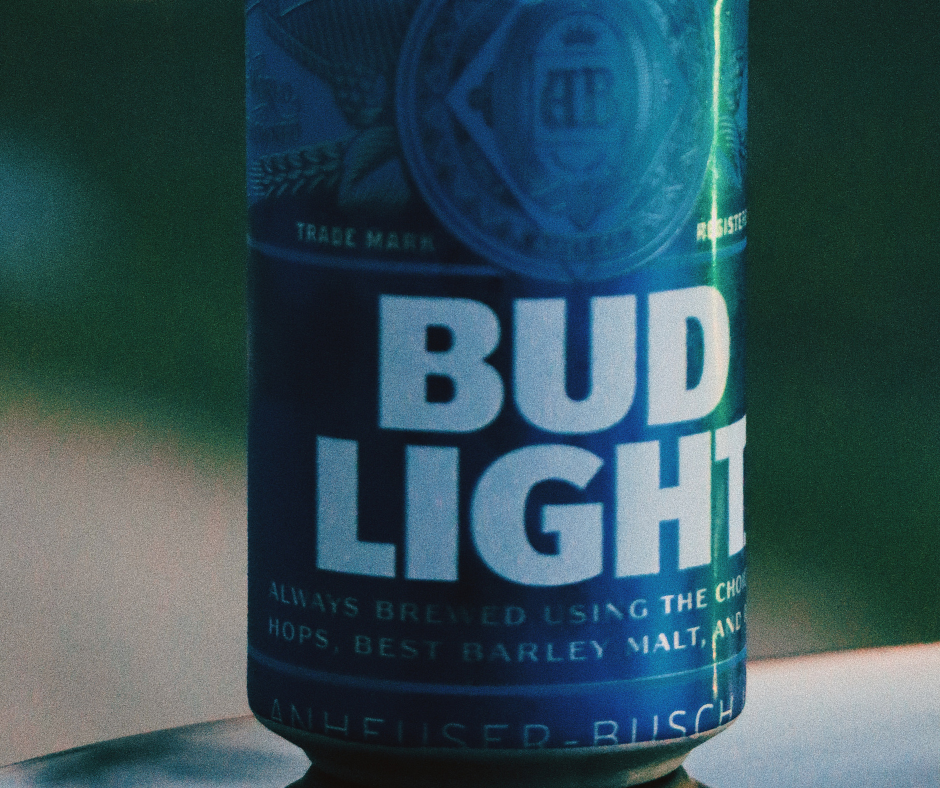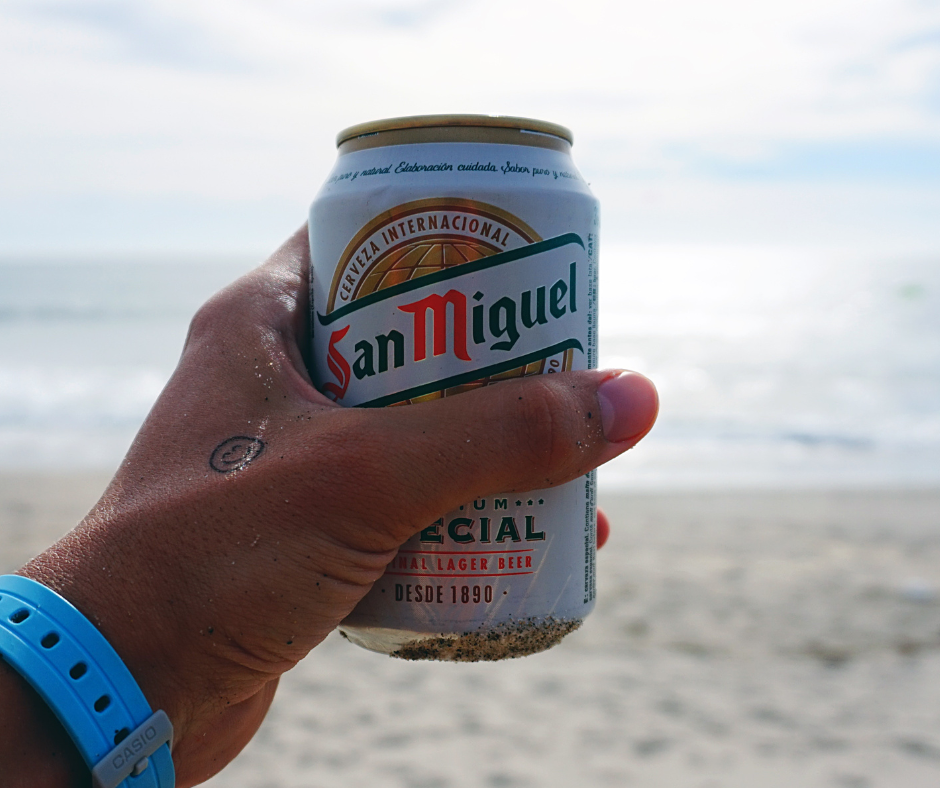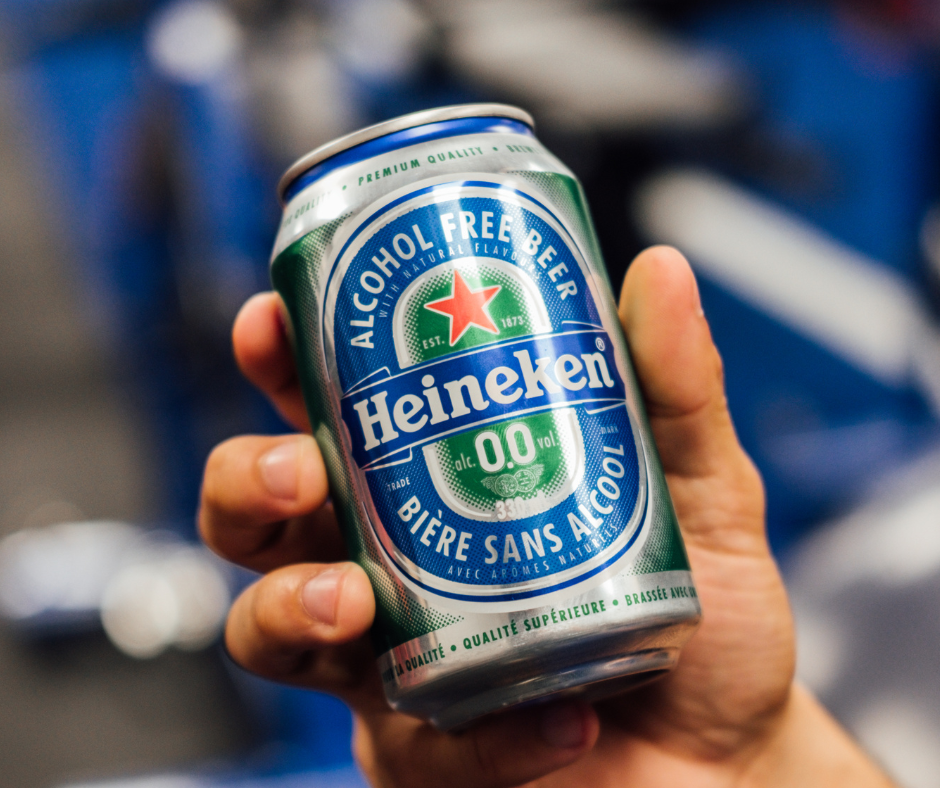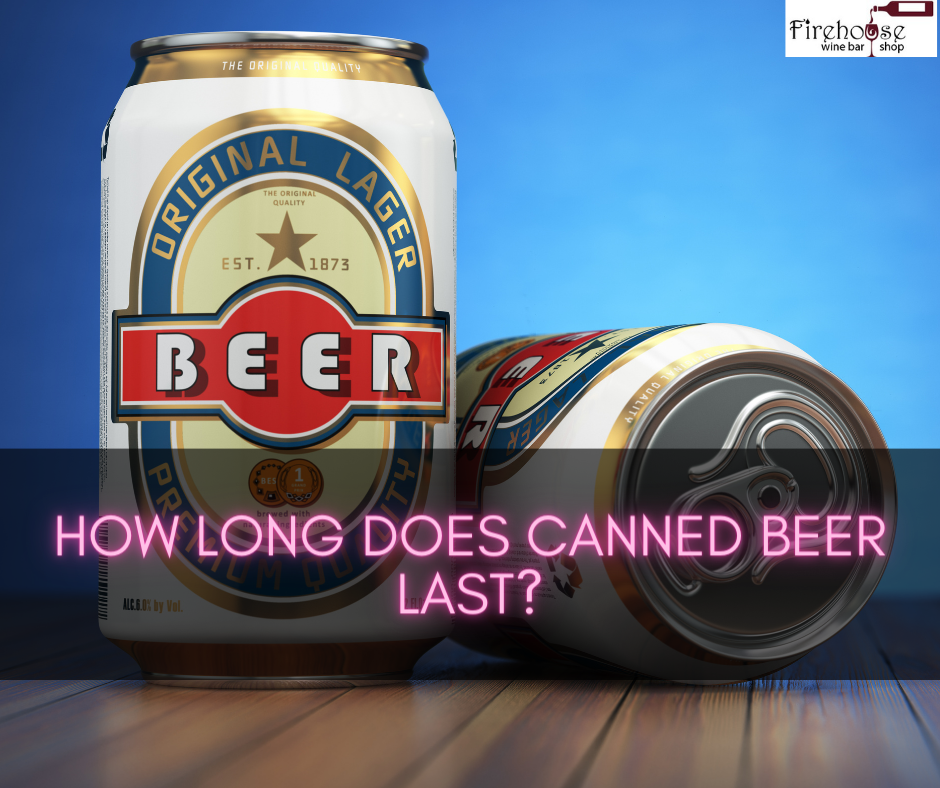Introduction
Understanding the lifespan of canned beer is essential for beer enthusiasts and consumers alike. Unlike bottled beer, which has a relatively shorter shelf life, canned beer offers a longer duration for enjoyment. With its sealed and lightless nature, canned beer can maintain its freshness and flavor for an extended period, making it a popular choice among beer lovers. This blog will help you explore ‘How Long Does Canned Beer Last?‘.
Importance Of Understanding The Lifespan Of Canned Beer
Knowing how long canned beer can last is crucial for retailers and consumers. It allows retailers to manage their inventory effectively, ensuring customers are always provided with fresh, high-quality products. Understanding the lifespan of canned beer enables consumers to make informed decisions when purchasing and consuming their favorite brews.
How Long Does Canned Beer Last? Factors That Affect The Lifespan Of Canned Beer
Canned beer can have a shelf life of 1-2 years. However, several factors can influence the lifespan of canned beer. Storage conditions play a significant role in determining how long the beer will remain fresh. It is recommended to store canned beer in cool, dark places to prevent spoilage. Exposure to heat and direct sunlight can accelerate aging and negatively impact the beer’s flavor.
Another factor to consider is the canned beer’s production date or expiration date. It is crucial to check the date on the can to ensure freshness. Using your senses, such as smelling and tasting the beer, can also help determine if it has gone bad or developed off flavors.
In summary, understanding canned beer’s lifespan is vital for retailers and consumers. Canned beer offers a longer shelf life than bottled beer, thanks to its seal and lightless nature. By considering factors such as storage conditions and expiration dates, beer enthusiasts can enjoy fresh and flavorful brews for an extended period.

The Science Behind Canned Beer Lifespan
Understanding the factors affecting canned beer’s lifespan is essential for beer enthusiasts and retailers alike. The science behind canned beer’s long shelf life lies in its packaging design and its protection against the main culprits of spoilage: light, oxygen, and temperature.
Oxygen Exposure And Its Impact On Beer
Oxygen is one of the primary factors that can cause beer to spoil and develop off flavors. When beer is exposed to oxygen, it can oxidize various compounds present in the brew, resulting in the characteristic cardboard or dried fruit flavors. However, canned beer has a distinct advantage in this regard.
The sealed nature of cans acts as a barrier against oxygen. Unlike bottled beer, which can allow small amounts of air to enter the bottle cap, canned beer creates a tight seal that minimizes oxygen exposure. As a result, canned beer can maintain its freshness and taste for a longer period, with an estimated shelf life of 1-2 years.
The Role Of Temperature In Beer Shelf Life
Temperature is another crucial factor that can significantly impact beer’s shelf life and quality. Exposure to extreme temperatures, especially heat, can accelerate aging and degrade the beer’s flavor. This is where canned beer’s design plays a crucial role.
Cans provide insulation against external temperature fluctuations, keeping the beer inside at a more stable temperature. Additionally, canned beer is less susceptible to the effects of UV light, which can contribute to the breakdown of compounds in the beer and result in “skunky” flavors. The dark design of canned beer helps shield it from harmful light, further enhancing its shelf life.
In conclusion, understanding the science behind canned beer’s lifespan is essential for ensuring the enjoyment of fresh and quality brews. Cans offer a longer shelf life compared to bottles, thanks to their sealed and lightless nature. By minimizing oxygen exposure and providing insulation against temperature changes, canned beer can maintain its flavor and freshness for an extended period. However, it is important always to verify the beer’s expiration date and use your senses to ensure its quality before consumption. So grab a can of your favorite brew, sit back, and savor the flavors, knowing it will stay fresh for an enjoyable drinking experience.
Canned Beer Versus Bottled Beer
When deciding between canned beer and bottled beer, there are a few key factors to consider. Both options have their advantages and disadvantages, and it ultimately comes down to personal preference. Let’s look at the pros and cons of canned beer compared to bottled beer.
Pros And Cons Of Canned Beer
One of the biggest advantages of canned beer is its superior protection against light exposure and oxygen. Light exposure can accelerate beer spoilage and impact the taste, but canned beer effectively guards against this. The sealed nature of cans acts as a barrier, minimizing oxygen exposure and keeping the beer fresh for a longer period. Additionally, canned beer provides insulation against temperature fluctuations, ensuring the brew stays stable.
On the other hand, some people may be concerned about the metallic taste associated with canned beer. However, advancements in canning technology and the use of special linings have greatly minimized this issue. It’s also worth noting that cans are more convenient and portable, making them popular for outdoor activities and events.
Shelf Life Comparison Between Canned And Bottled Beer
Regarding shelf life, canned beer typically has a longer lifespan than bottled beer. So, How Long Does Canned Beer Last? Canned beer can last anywhere from 1 to 2 years, thanks to its sealed and lightless nature. This extended shelf life results from the car’s design, which protects the beer from oxygen and light exposure. On the other hand, bottled beer usually has a shelf life of around three months to 1 year, depending on various factors such as the type of bottle and storage conditions.
It’s important to note that these are general estimates and can vary depending on the specific beer and storage conditions. Always check the expiration date on the beer’s packaging and trust your senses to ensure freshness and quality.
In conclusion, while both canned and bottled beer have their merits, canned beer offers a longer shelf life and better protection against light exposure and oxygen. The sealed and lightless design of cans helps prevent beer spoilage, allowing it to maintain its flavor and freshness for an extended period. So whether you prefer the convenience of cans or the traditional appeal of bottles, rest assured that canned beer can provide a reliable and enjoyable drinking experience.

Storing Canned Beer Properly
Recommended Storage Conditions For Canned Beer
To ensure that your canned beer stays fresh for as long as possible, it’s important to store it properly. Here are some recommended storage conditions for canned beer:
- Cool temperature: Canned beer should be stored in a cool place, ideally between 40°F (4°C) and 55°F (12°C). Avoid storing it in areas prone to temperature fluctuations, such as near ovens or radiators.
- Dark environment: Cans should be kept from direct light, as exposure to light can lead to the breakdown of hop compounds and result in off-flavors. Store your canned beer in a dark place like a pantry or basement.
- Vertical position: While cans are less susceptible to oxidation than bottles, storing them upright can help maintain the integrity of the seal and prevent any potential leakage.
- Low humidity: Moisture can damage the quality of canned beer, so it’s important to store them in a dry environment. Avoid storing them in high humidity levels, such as near sinks or refrigerators.
Tips For Maximizing The Lifespan Of Canned Beer
To further extend the shelf life of your canned beer, here are some additional tips:
- Buy fresh: When purchasing canned beer, check the packaging or expiration date to ensure you’re buying the freshest batch possible.
- Handle with care: Avoid shaking or dropping the cans, as this can disturb the sediment and negatively impact the taste of the beer.
- Keep away from strong odors: Cans can absorb strong odors, so it’s best to store them away from any items with strong smells, such as cleaning products or foods with potent aromas.
- Use a beer koozie: If you’re enjoying your canned beer outdoors, it can help insulate the can and maintain its temperature for longer.
By following these recommended storage conditions and tips, you can maximize the lifespan of your canned beer and ensure that you’re enjoying a fresh and flavorful brew with every sip. Cheers!
Understanding Expiration Dates
How To Interpret Expiration Dates On Canned Beer
When it comes to canned beer, expiration dates play a crucial role in determining the lifespan and freshness of the product. However, deciphering these dates can sometimes be confusing for consumers. Canned beer typically exhibits a code or date of canning, which may appear as a series of letters and numbers. It’s important to note that these codes are not meant for the consumer to interpret as a “Best if Used By” date.
It’s essential to recognize the codes or dates provided to understand the expiration dates on canned beer. Craft brewers may have different guidelines for how long their beer lasts, but most beers can generally be stored for up to 150 days or roughly five months. This timeframe ensures the beer remains in good condition and maintains its optimal flavor.
The Significance Of Best By Versus Born On Dates
When examining the expiration dates on canned beer, you may come across two types of dating methods: “Best By” and “Born On” dates. While both provide information about the beer’s freshness, they convey slightly different meanings.
The “Best By” date indicates the date until the beer is considered fresh and of the highest quality. It guides how long the beer will retain its optimal taste profile and aroma. It’s important to consume the beer before or by this date to experience its intended flavor.
On the other hand, the “Born On” date specifies the date on which the beer was canned. Although it doesn’t provide an explicit expiration date, it offers valuable information about the beer’s age. By considering the “Born On” date and the recommended shelf life of the specific beer, consumers can gauge its freshness and make informed decisions about their purchase.
It’s worth noting that relying solely on the “Born On” date can be misleading. Suppose a beer only has an expiration date. In that case, the quality of the product may deteriorate before the date due to various factors such as storage conditions and ingredients.
In conclusion, understanding the expiration dates on canned beer is crucial for ensuring the freshness and quality of the product. By paying attention to the “Best By” and “Born On” dates, consumers can make informed decisions about their beer purchases and enjoy a delightful drinking experience.

Signs Of Spoiled Canned Beer
Visual And Sensory Indicators Of Spoiled Beer
It’s essential to recognize the signs of spoilage when it comes to canned beer to avoid a disappointing drinking experience. Here are some visual and sensory indicators to look out for:
- Cloudy Appearance: A beer that appears hazy or turbid may indicate spoilage. This cloudiness is often caused by yeast, bacteria, or protein particles in the beer.
- Off Smell: Spoiled beer can emit unpleasant odors like sour or vinegar-like smells. If the beer smells off, it’s best to avoid consuming it.
- Change in Color: While some beer styles may naturally change over time, a drastic color change can indicate spoilage. Look out for beers that have turned brown or have unusual hues.
- Excessive Carbonation: A canned beer that is overly carbonated may indicate a fermentation issue. This can result in gushing or excessive foaming when the can is opened.
- Flat or Stale Taste: Spoiled beer can lack carbonation or a stale taste due to a breakdown in the brewing process or unwanted microbial activity.
Potential Health Risks Associated With Consuming Spoiled Beer
Consuming spoiled beer can have some potential health risks. While it is unlikely to cause severe illness, it’s still important to be aware of these risks:
- Off-Flavors: Spoiled beer can have unpleasant off-flavors that may be unpalatable to some individuals. These off-flavors range from sour or bitter tastes to funky or metallic notes.
- Gastrointestinal Distress: In some cases, consuming spoiled beer can lead to symptoms such as stomach discomfort, nausea, vomiting, or diarrhea. These symptoms are typically mild and resolve on their own.
- Allergic Reactions: For individuals with specific allergies or sensitivities, consuming spoiled beer containing certain contaminants or microbes could trigger allergic reactions.
- Intoxication Risks: If a beer has spoiled and undergone unintended fermentation, the alcohol content may significantly increase. Consuming such beer can lead to quicker intoxication and impaired judgment.
In conclusion, recognizing the signs of spoiled canned beer is crucial to ensure a pleasurable drinking experience and avoid potential health risks. Consumers can make informed decisions about their beer consumption and prioritize their well-being by focusing on visual and sensory indicators like cloudiness, 0ff-smells, and off-flavors.
Extending The Lifespan Of Opened Canned Beer
When it comes to enjoying a refreshing beer, there’s nothing worse than opening a can only to find that it has gone bad. To preserve the freshness and extend the lifespan of opened canned beer, you can employ a few techniques. Here are some tips to help you keep your favorite brew tasting its best for as long as possible.
Techniques For Preserving The Freshness Of Opened Canned Beer
- Refrigerate promptly: After opening a beer can, storing it in the refrigerator as soon as possible is important. The colder temperature will slow down the degradation process and help maintain the beer’s quality for longer.
- Transfer to a sealed container: If you don’t anticipate finishing the entire can in one sitting, consider pouring the remaining beer into a sealable container, such as a growler or a mason jar. This will help minimize the contact with oxygen and maintain carbonation.
- Limit exposure to light: Light exposure can accelerate beer spoilage and degrade the flavor. To prevent this, store opened cans in a dark place or wrap them in aluminum foil to shield them from UV rays.
- Drink it within a few days: While canned beer generally retains its freshness for a longer period than bottled beer, it’s still best to consume it within a few days to ensure optimal flavor. As time passes, the beer may lose its carbonation and develop off-flavors.
When It’s Time To Say Goodbye: Signs That Opened Canned Beer Has Gone Bad
Despite your best efforts, there may come a time when you need to accept that a can of beer has gone bad. Here are some visual and sensory indicators that can help you determine if the beer is no longer drinkable:
- Off smells: It is likely spoiled if the beer emits a foul or unpleasant odor, such as a vinegar-like or sour smell.
- Change in appearance: Look for any significant changes in the beer’s appearance, such as cloudiness, unusual hues, or floating particles. These can be indications of spoilage.
- Flat or off-tasting: If the beer lacks carbonation or has a stale and unappetizing taste, it may have undergone spoilage.
By being aware of these signs and following proper storage techniques, you can enjoy your opened canned beer for as long as possible while ensuring a pleasurable drinking experience. Remember, these guidelines are estimates, so always verify the beer’s expiration date and use your senses to ensure freshness and quality.
Conclusion
Summary Of Key Findings
Now you should know the answer to ‘How Long Does Canned Beer Last?’. Canned beer has an impressive shelf life of 1-2 years, thanks to its sealed and lightless nature. The car’s design is a barrier, protecting the beer from oxidation, light exposure, and developing off-flavors. Compared to bottled beer, canned beer tends to be more durable and less susceptible to skunkiness.
It is important to store canned beer in a cool, dark place to maintain its freshness for longer. Avoid exposing it to high temperatures or direct sunlight, as these can accelerate the degradation process. Also, handling the cans carefully and consuming the beer within a few months for optimal flavor is recommended.
Final Thoughts On The Lifespan Of Canned Beer
Canned beer offers a convenient and reliable option for enthusiasts who want to enjoy a fresh and flavorful brew. With its extended shelf life and protection against spoilage, canned beer allows consumers to stock up on their favorite beverages without worrying about expiration dates.
However, paying attention to the beer’s quality and freshness is essential. Always verify the expiration date and use your senses to ensure the beer is still in its prime. Over time, canned beer may lose carbonation and develop off-flavors, impacting the overall taste experience.
By following proper storage practices and consuming the beer within a reasonable timeframe, you can maximize the lifespan and enjoyment of canned beer. Whether you’re enjoying a refreshing lager or a hoppy IPA, savor the flavors and appreciate the convenience and longevity of canned beer.
Remember, the information provided here is based on general guidelines, and it is always best to refer to the beer’s expiration date and consult with experts for any specific concerns or queries regarding canned beer lifespan.
FAQ: How Long Does Canned Beer Last: Unveiling Duration
Q: How Long Does Canned Beer Last?
A: Canned beer can last 1-2 years, depending on certain conditions.
Q: Can canned beer be aged like bottled beer?
A: Yes, canned beer can be aged like bottled beer. Some beers can be aged even longer than 12 months, but it is recommended for retailers to note the vintage once it surpasses the 12-month mark.
Q: Is there a difference in shelf life between cans and bottles?
A: The debate between cans and bottles is ongoing, but the type of packaging does indeed impact the shelf life of beer. Bottled beer has been the traditional method of packaging craft beer for a long time, and many still prefer it. However, cans are gaining popularity. It is important to note that the shelf life of beer can be affected by how it is packaged.
Q: How can I ensure that I get good-tasting canned beer?
A: To ensure you get good tasting canned beer, follow these tips: Purchase it from a retailer that stores their beer away from UV light. Keep the beer cold once you bring it home, as lower temperatures slow the aging process. Store the beer in a dark area to avoid UV light exposure. Ideally, consume the beer within four months of the canned date. Most styles tend to lose freshness after 180 days.
Q: How long can a canned beer be considered good to drink?
A: Determining the exact lifespan of a beer is not an exact science, as it largely depends on various factors. While it is rare for a beer to go bad and become undrinkable, its flavor can change or diminish over time. There are no hard and fast rules, but some general guidelines can be followed. Consuming the beer within four months of the canned date is recommended for optimal taste. Beyond this, the beer may lose its intended flavors or develop new ones.

Andre Lotz immigrated to the United States from South Africa almost 20 years ago. Still, he didn’t feel truly at home until he settled in Mobile—a city that reminds him of his childhood home of Fish Hoek on the southern cape of Africa.

